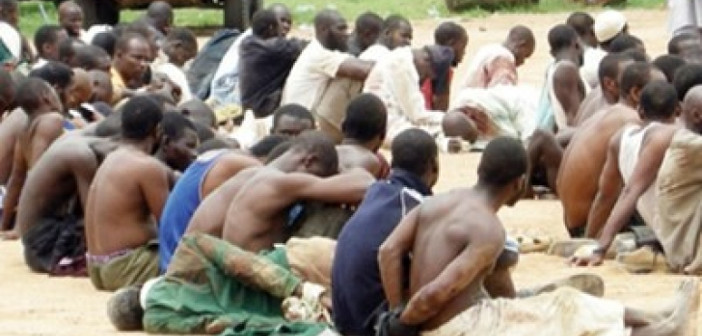Reports emanating from human rights watchdog, Amnesty International, claimed at least 149 detainees have died “in horrendous conditions” at a military detention centre in north-east Nigeria this year.
According to the report, Amnesty says 11 of those who died at Nigeria’s Giwa barracks were young children, including four babies.
Amnesty described the centre as “a place of death” and said it should be closed.
The army is yet to commented on the latest report but has previously said it has set up a human rights department to check claims of abuse.
The Giwa barracks detention centre in Maiduguri, capital of Borno state, is in an area where the authorities are fighting the Boko Haram militant group.
In the report, Amnesty said evidence gathered from interviews with former detainees and eyewitnesses, and supported by video and photographs, indicated that many detainees may have died from disease, hunger, dehydration, and gunshot wounds.
“The discovery that babies and young children have died in appalling conditions in military detention is both harrowing and horrifying,” said Netsanet Belay, Amnesty’s research and advocacy director for Africa.
“We have repeatedly sounded the alarm over the high death rate of detainees in Giwa barracks but these findings show that, for both adults and children, it remains a place of death.”
The report calls for the barracks to be closed immediately and all detainees released or transferred to civilian authorities.
Amnesty says it believes that about 1,200 people are being held at Giwa, many of them arbitrarily rounded up during mass arrests.
“Once inside the barracks, they are incarcerated without access to the outside world or trial. At least 120 of those detained are children,” it says.
Amnesty has previously accused the military of executing more than 640 detainees following a Boko Haram attack on the detention centre in March 2014.
It has also said that, since 2011, more than 8,000 young men and boys have been either shot, starved, suffocated or tortured to death in Nigerian military custody and that no-one has been held responsible.




